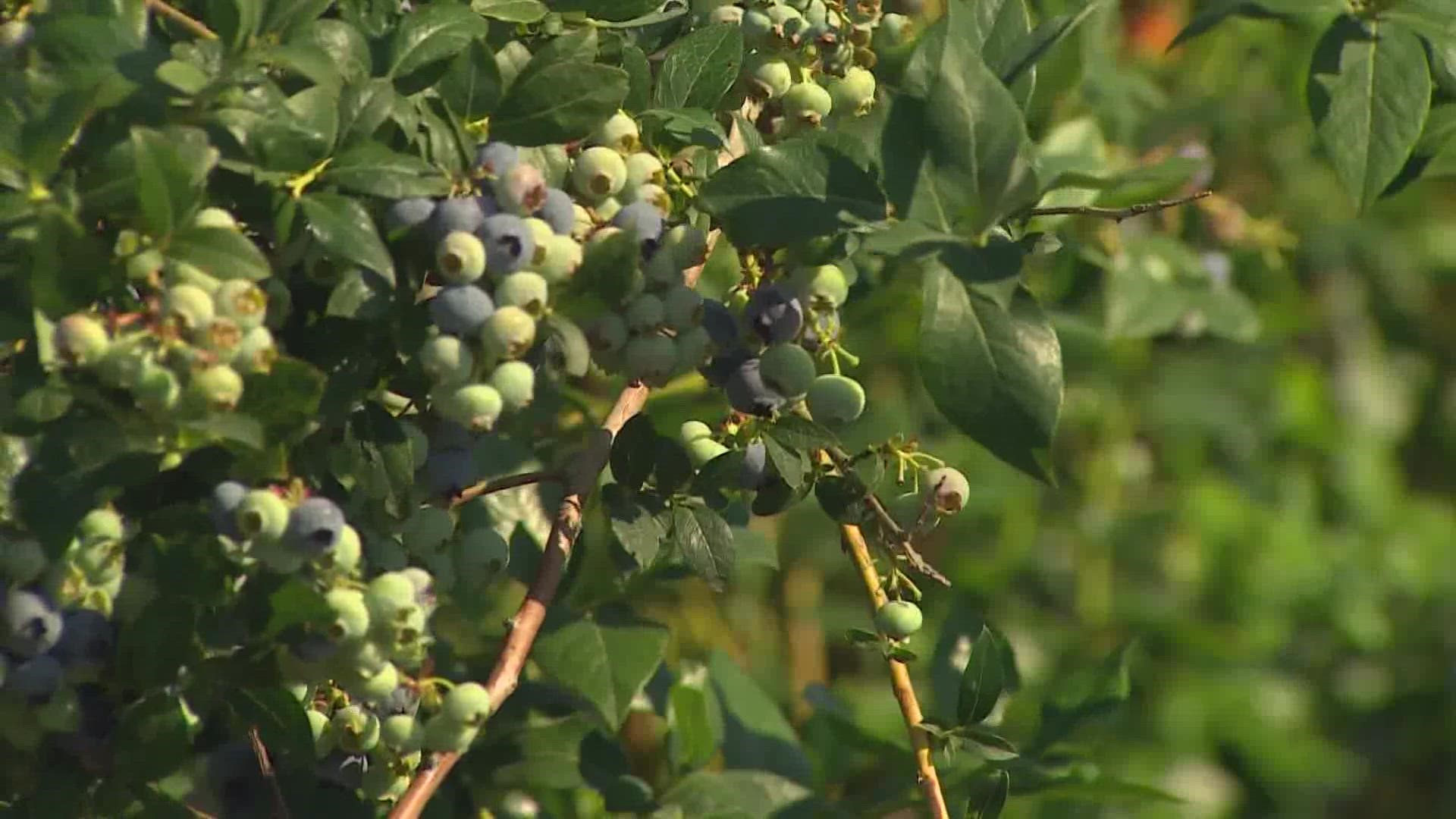SNOHOMISH, Wash. — It’s prime picking season at Mountainview Blueberry farm in Snohomish.
“There’s a lot of ways to make a living as a farmer, I think we’ve settled on the best way,” Keith Stocker said. “Being able to see families enjoy what they do out here, is just awesome!”
Stocker is co-owner of Mountainview Blueberry Farm and president of Stocker Farms in Snohomish.
The blueberry season came later than normal this year due to one of the wettest and coldest springs on record.
“It just meant we couldn’t get into our fields as soon," Stocker said. "A lot of the crops were planted four to six weeks late. It’s affecting things like our pumpkin crops, you know, a lot of that acreage was too wet to plant, so it’s in late. So, things will be running behind.”
It’s not just the cold that made this year a challenge, but the heat wave as well.
“Today there are dozens of families out here already trying to get ahead of the heat we’re having,” Stocker said Thursday morning, standing in the middle of his blueberry farm.
The temperature was already near 80 degrees at 9 a.m.
Chris Benedict, who works for Washington State University research extension and focuses on horticulture in western Washington, said weather extremes are often bad for plants.
“It really depends on how, when and where that stress occurs, whether it’s cold, moisture, too much, too little or heat,” Benedict said.
The sudden shift to heat is having its own effect on crops.
“Heat is basically a massive stress on a plant and if it can’t deal with that it has to, sort of sacrifice possibly a portion of its plant,” Benedict said.
The impacts may be far-reaching.
“Things like last June where we had that massive heat wave, it had an immediate effect on things but we’re still seeing things sort of roll out possibly as a result," Benedict said.
Stocker now looks to the future and how to prevent setbacks as best he can.
Five years ago, with the help of a grant, he switched his watering technique to drip irrigation to make sure his blueberry plants got adequate water, especially in times of extreme heat.
“We are taking steps because it is part of where the future is going and whether it’s choosing varieties that are a little more drought tolerant or finding more efficient ways to sustain the health of plants, we’re having to," Stocker said. "We have to make those differences or changes."
Stocker noted, however, that it was not all bad.
He said the one thing that has benefitted from the cold, wet spring was his Christmas tree farm.
The cold spring helped his trees flourish.

